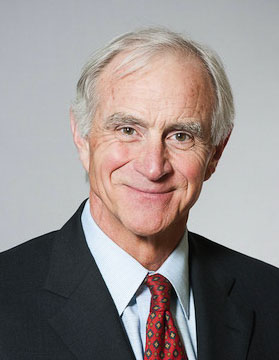Roger Stark of the Washington Policy Center discusses the belief of state Democrats that a single-payer health care system is viable

Roger Stark
Washington Policy Center
The political left really doesn’t understand financing for government entitlements. Medicare and Medicaid as currently structured are not financially sustainable. Yet, Democrats continue to believe that a single-payer health care system is viable on a state-basis.

Remember when officials in Vermont thought they had the answer – that was until they realized a single-payer system would raise the state budget by over 30 percent. (here) Colorado voters defeated a ballot initiative when they became aware of the astronomical cost of a single-payer system. Even in blue Washington state, officials are trying to establish a state-based system, yet have struggled with the financing of the entitlement. (here)
In spite of two failed attempts, we now have California officials proposing to ram through a single-payer system bill with only Democrat votes. (here) Let’s start with the basics. The bill would increase taxes by $163 billion per year. That’s a lot, yet according to the Healthy California for All Commission, the state spent a total of $400 billion in 2018 on health care. In other words, the plan is underfunded by 60 percent to begin with, unless Washington, D.C., pours federal taxpayer money into the state.
The supporters would also need to get waivers from the federal government to place all Medicare, Medicaid, and Obamacare enrollees into the state plan. Although the California Chamber of Commerce is violently opposed to the bill, employers would be required to force their employees into the state system. To paraphrase a former president, if you like your current health insurance plan, you won’t be able to keep it in California.
In Washington state, the Universal Health Care Commission, established last year, continues to meet with the challenge of organizing a single-payer state-based system by 2026. Officials must secure federal waivers, and at the same time, work out a financial plan that (hopefully) includes federal funding. Stand by for the huge new tax burden on Washington state taxpayers.
A single-payer health care system, whether on a state or national basis, has a number of fundamental problems. (here) The demand for health care far outweighs the supply of care. The question is whether government bureaucrats should have the authority to pick and choose what procedures patients receive and who should actually receive those treatments, while others are forced to wait for care.
The younger, working age group is getting smaller, while the older, non-working group is getting larger in proportion to the total population. A single-payer system is pay-as-you-go, so this demographic imbalance guarantees a looming financial disaster in health care funding in the future.
A single-payer system discourages innovation. There is virtually no money in the system to encourage investment in new life-saving medicines and medical devices. Lack of innovation guarantees that no new treatments will be discovered, with no improvement in quality of life or life expectancy.
Under a single-payer system, health care spending must compete with all other government activity for funding. This makes health care very political and subject to change with every new budget. It also forces each health care sector, for example hospitals and doctors, to compete with each other for limited money.
Fundamentally, a single-payer system centralizes all health care with the government. Bureaucrats, not patients and their providers, get to make life and death decisions about the kind and amount of health care people receive. Good luck, California …. and Washington state.
Roger Stark is a senior fellow at the Center for Health Care at the Washington Policy Center.




